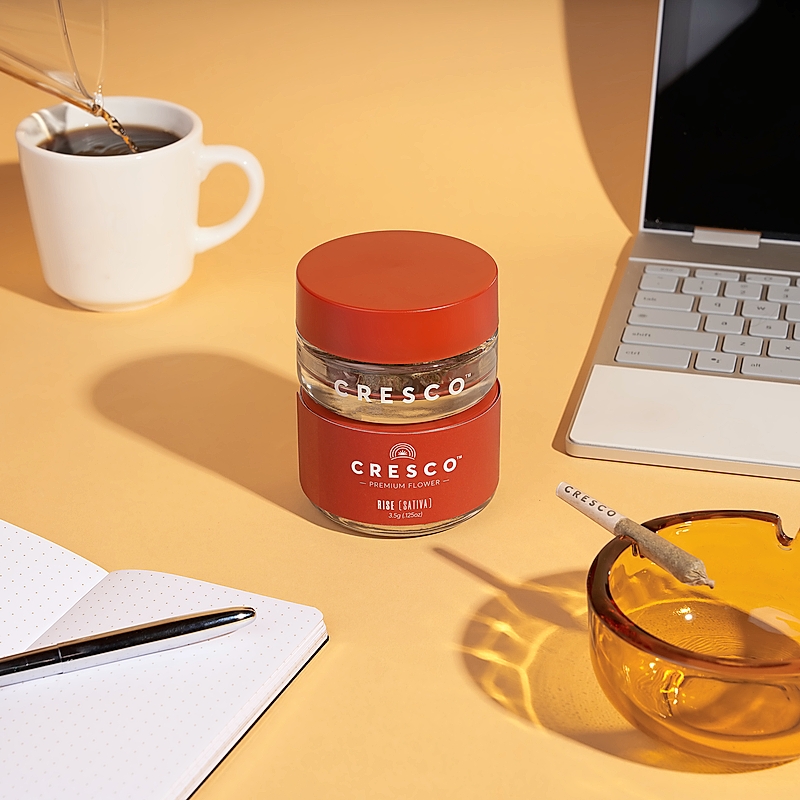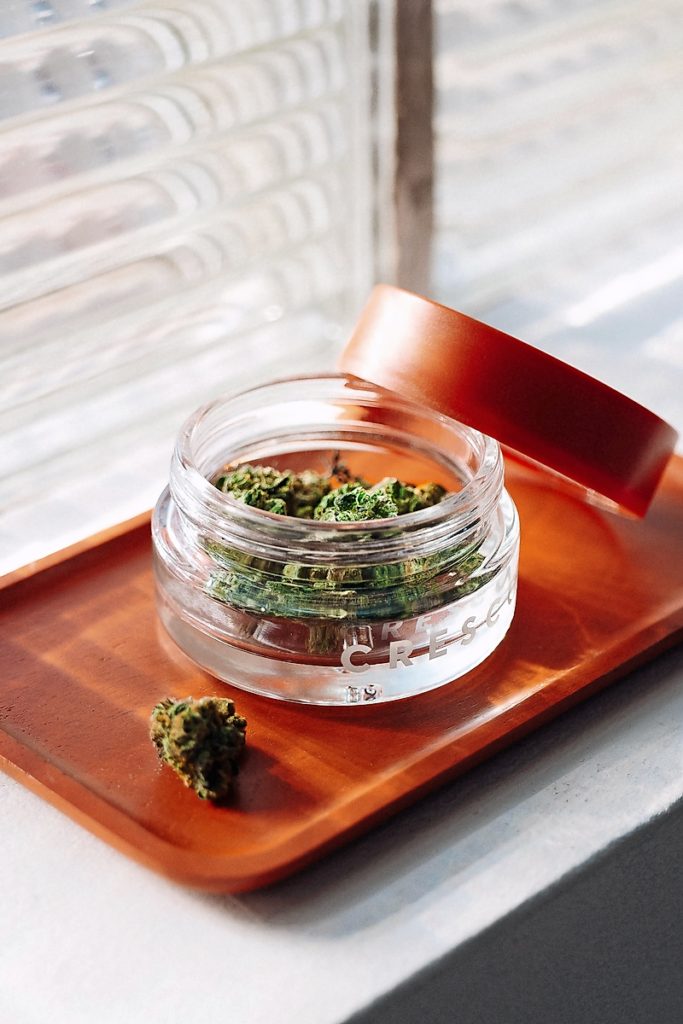Smokin’ Hot
By Naperville Magazine
May 2020 View more Shop

By Annemarie Mannion
Pot is a topic of budding interest throughout the western suburbs, and it’s likely to smolder for some time to come.
The burgeoning industry has faced challenges including many communities choosing to ban sales of recreational cannabis and the impact of COVID-19, which has forced some stores to impose social distancing measures.
Before recreational marijuana became legal in Illinois on January 1, many suburban communities had wrestled over whether to allow sales of recreational pot; some said no to it.
The law allows cities and towns to decide for themselves whether they want to allow sales of recreational cannabis to adults 21 and over. It was temporarily banned in Naperville, where opponents noted that marijuana is still prohibited on the federal level and charged that it would harm the town’s family-friendly atmosphere. The topic led to the City Council’s longest meeting ever—seven hours and 24 minutes—before the council voted against allowing it in September.
Other communities, including Hinsdale, Clarendon Hills, Downers Grove, Bolingbrook, and Elmhurst, also have banned sales of recreational pot. The story is far from over, however. Referendums in March put the question of whether to allow recreational weed sales to some voters and many indicated they’d favor it.
A majority of voters in Naperville, Rosemont, Cicero, Northlake, and Westchester said yes to allowing pot sales in their communities, but the referendums are nonbinding—meaning leaders aren’t obligated to follow the desires of voters, though the results may inform future decisions.
Meanwhile, suburban businesses are capitalizing on the new market. The state reported marijuana sales totaling nearly $110 million in the first three months of 2020.
A visit to a dispensary to purchase cannabis may be a first-time experience for many, but it shouldn’t be intimidating, says Clay Wynn, district manager for Illinois and Ohio for Pharmacann, which operates Verilife stores that sell both medical and recreational cannabis in North Aurora, Romeoville, and Ottawa, plus one in Arlington Heights for medical cannabis only.
Cannabis dispensaries have been deemed essential and are staying open during the COVID-19 shutdown. To stay healthy during the pandemic, the stores are currently practicing social distancing.
“Our staff is cleaning all surfaces between transactions and adhering to the [Centers for Disease Control and Prevention] guidelines of frequent hand washing, wearing gloves, and other practices,” Wynn says. “We have markers to show patients and customers where they should stand to ensure proper distancing.”
Wynn recommends checking the company’s website or calling its toll-free number, 888.493.6066, to learn whether there are wait times at the store or to make an appointment.
Like Wynn, Ernie Thompson, an associate at Rise cannabis dispensary in Joliet, recommends that first-time customers visit the risecannabis.com website first to get an idea of product offerings and wait times. The store is a brand of Green Thumb Industries, which has 31 stores in nine states, and is opening new stores every month.
As a result of COVID-19, Rise is asking customers and med patients to sign up on a wait list on the company’s website. Clients will receive a text telling them the wait time, and a second text when the store is ready to receive them. Customers can wait in their cars until it’s time to enter, and will find that social distancing is in practice, with markings for where customers should stand to keep six feet apart.
While any adult 21 or over can buy recreational cannabis in Illinois, purchases of medical cannabis are limited to people who’ve gotten a doctor’s referral, have registered with the state, and have a medical ID card. Customers of either type of product should also bring a valid identification card and cash for the purchase. IDs are checked to verify identity and ensure a customer is at least 21 years old.
State law in Illinois sets limits for how much recreational cannabis a customer can purchase. The limit is 30 grams of flower, five grams of concentrate, or 500 milligrams for edibles.
Medical marijuana has been legal in Illinois since 2013, and was the impetus for the creation of Cresco Labs, a Chicago-based company that has become one of the largest multi-state companies that control cultivation, manufacturing, extraction, and packaging processes. It now operates in 11 states, with 18 production facilities, 31 retail licenses, and 21 owned dispensaries.

Cresco operates dispensaries under the Sunnyside brand in Elmwood Park, Rockford, and Buffalo Grove. It has plans for more dispensaries in Schaumburg, Chicago, Danville, and South Beloit. Jason Erkes, chief communications officer, says the company is happy to help customers new to purchasing cannabis.
“We’re aware that this may be the first time a person purchases cannabis,” he says. “We’re there to help walk them through the process.”
Whether during a time of social distancing or not, the goal is to make customers feel comfortable. Thompson, Erkes, and Wynn all said their stores have a sleek yet welcoming decor, and are happy to address customers’ concerns by phone before they enter a store.
“It’s not like a head shop experience in any way,” Wynn says. “It looks like an Apple store. There is a lot of open space and display cases. It is designed to take the mystery out of it.”
Photo Courtesy Burdi Clothing


